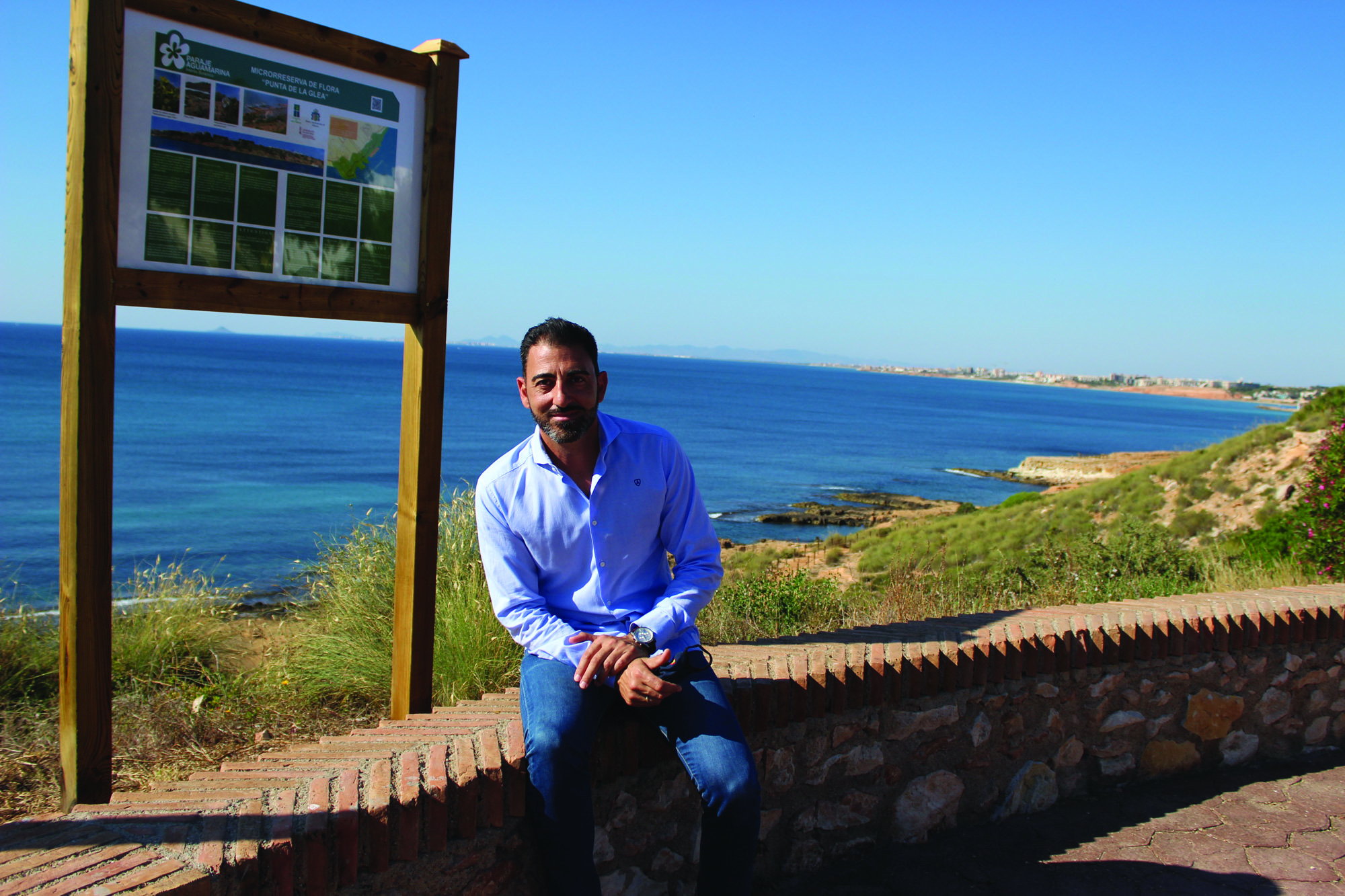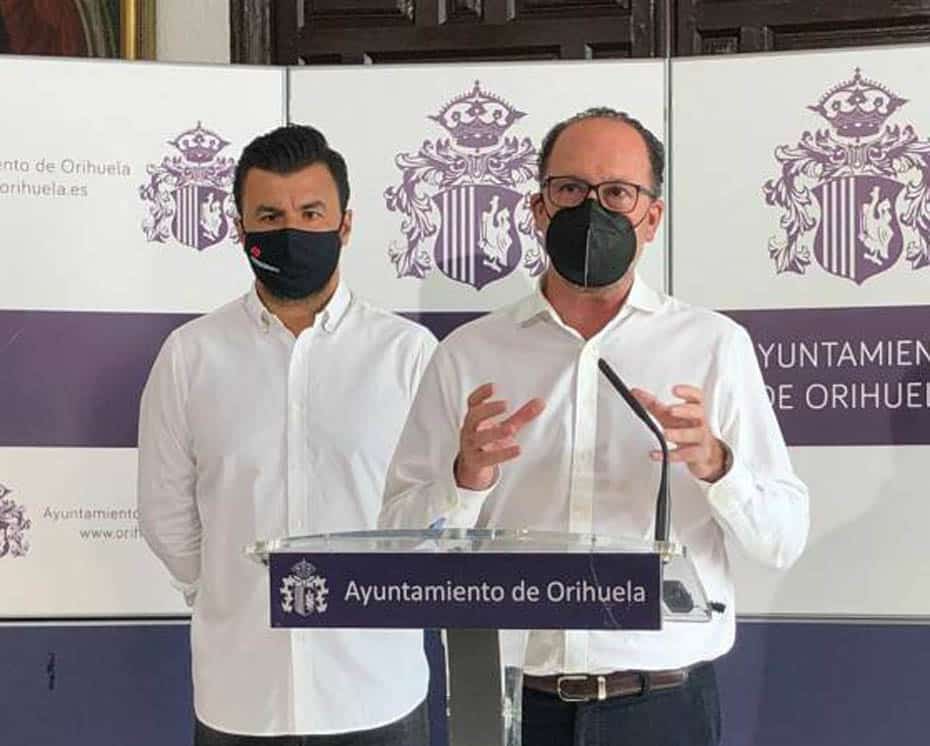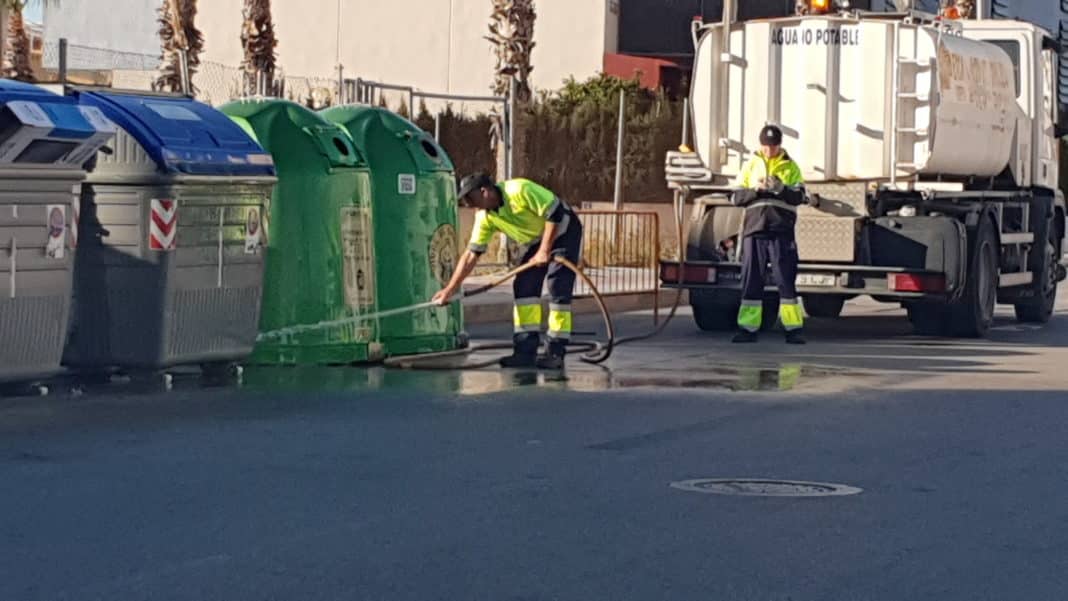The misunderstandings and disagreements between the government coalition, the Partido Popular with nine councillors and Ciudadanos with five, in the Orihuela Town Hall, is close to breaking point with many PP officials saying that there is a permanent obstruction and that if the local administration could bring forward the elections it would do so.
PP councillors have even sought the support of the opposition to carry out some initiatives.
The greatest example of these problems is the management of the council’s largest public service, that of waste collection and street cleaning, an issue that provokes numerous complaints from the public.
A survey carried out by the council itself reveals that 49% of the population considers that the service currently provided is unacceptable.
Councillor Dámaso Aparicio says that he has spent five years trying to modernise a system that is clearly outdated and unfit for purpose.

Not surprisingly, it’s operation is based on an award inherited and designed in 2008 that has nothing to do with the current reality of the municipality, which “has grown exponentially, especially in the districts and on the coast,” he says.
In 2012 the PSOE, Los Verdes and CLR-Claro three party coalition, in the midst of a workers’ strike, decided to bring the service back into municipal management, it was thought for a period of six months, but in May it will have been for 10 years.
According to Aparicio, “We then had 24 fewer workers, which was more than enough to carry out all the tasks, some of which were then the responsibility of other departments, such as cleaning up after the markets and collecting algae from the beaches.”
Since those days the Department of RSU and Street Cleaning has invested 2 million euros in improvements, half to acquire new trucks, but even with that, less than a third of the fleet has been replaced.
“It is clear that the service has become obsolete and deficient,” he states.
For that reason, last year we commissioned an external report on the different management options: direct, mixed and outsourced. Based on the study’s conclusions, according to Aparicio, the solution would appear to be a joint venture; that is, with public and private collaboration, but with the municipal contribution having more weight.
This version presents “certain advantages in cases where it will be necessary to undertake significant economic investments or introduce methods and techniques that the City Council cannot carry out on its own,” he maintains.
“In Orihuela we have had a bad experience with a totally external company, and although we know what needs to be done, the political decision to prepare an economic and labour report, which has to be approved at the monthly plenary session (council meeting), is still to be agreed”.

This is where the main stumbling block lies because, as has been the case time and again, we do not have the support of our government partner.
The municipalised service costs the Orihuela budget 12 million euros a year, but to provide what the councillor considers to be adequate service, would need at least 3.5 million more. In Torrevieja, a city of a very similar size, the current budget is 27.5 million euro.
As anyone living on the coast will know, the service operating in the area is obsolete and with huge shortcomings. Orihuela generates 50,000 tons of waste a yea. It has not updated the collection rate since the 1980s and there are many deficiencies in a service that is provided according to 2008 parameters.
For councillor Dámaso Aparicio, the time has come to act. Likening the service to a hospital patient, in his words, “we have stabilized him, but he can’t continue as he is; either we revive him or he dies”.





